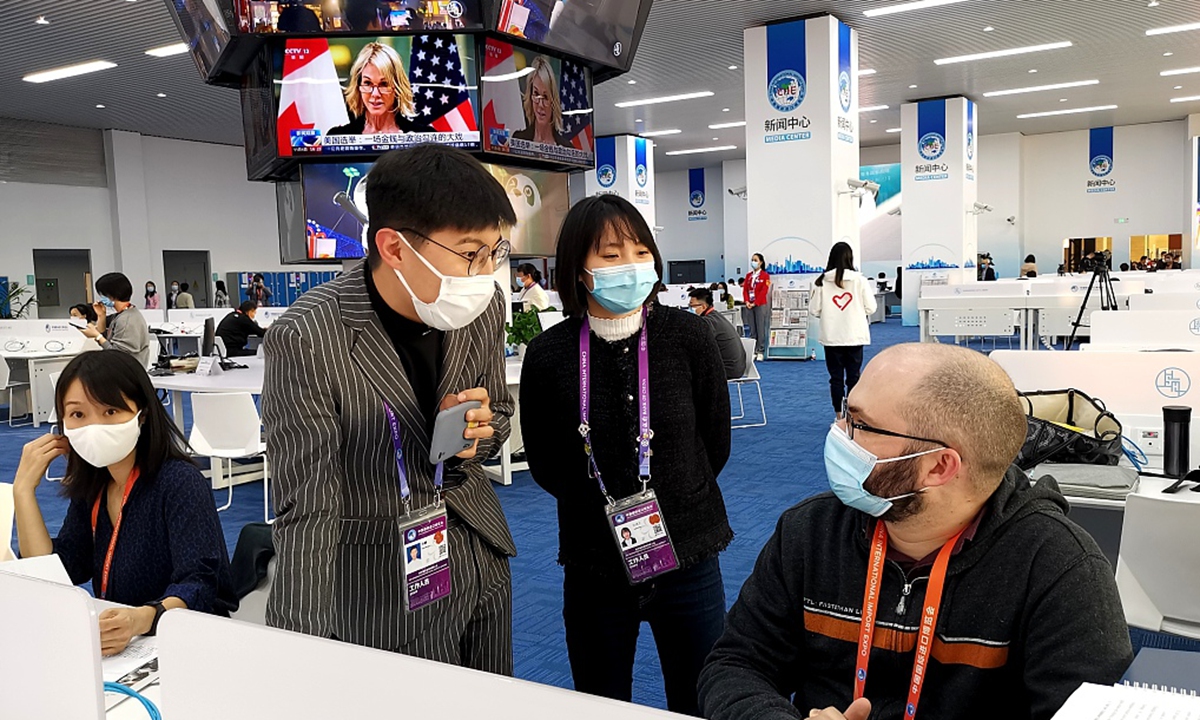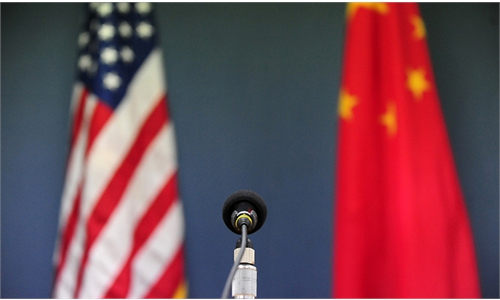US reporters’ visa restrictions may be eased, but ‘China haters’ still unwelcome: experts

Chinese and foreign journalists work at the Media Center of the third China International Import Expo (CIIE) in Shanghai on November 4, 2020. File Photo: VCG
If US news agencies send back journalists who deliberately distort the facts, concoct lies about China, and maliciously attack China's system, it will shadow the conciliatory trend as both countries agreed to relax visa restrictions on each other's journalists, Chinese observers warned.
Media reported on Tuesday night that China and the US have reached consensus over reporters in the other country ahead of the Xi-Biden virtual meeting.
China and the US guaranteed to each other the normal travel of correspondents between the two countries under epidemic prevention regulations, China News Service reported. The US, which had limited visas for Chinese journalists to 90 days, will provide yearlong visas to foreign reporters, renewable annually.
A Chinese journalist based in the US, who asked for anonymity, told the Global Times that he hasn't received any specific notice yet.
When asked if previously expelled US journalists can return to China, Zhao Lijian, spokesperson of China's Ministry of Foreign Affairs, said at a Wednesday briefing that China attaches great importance to media, and is trying to provide convenience and serve foreign journalists in China.
China objects to US "discriminatory" action against Chinese journalists in the US, said the spokesperson, urging the US to keep its promise and fulfill relevant policies.
Beijing and Washington have been engaged in a "media war" since February 2020, when the US classified a number of Chinese media outlets as "foreign missions" and limited their presence in the US, forcing 60 Chinese journalists to leave the country. As a countermeasure, China expelled journalists from three major US newspapers in China, namely, the New York Times, The Wall Street Journal and The Washington Post. China also demanded China-based branches of several US media to declare in written form information about their staff, finance, operation and real estate in China.
Although China's move was reciprocal, experts told the Global Times previously that those US media outlets were targeted because they concocted lies about China's handling of COVID-19, Xinjiang and other issues.
The expelled reporters, who concocted lies about China and baselessly attacked the Chinese system, have already affronted the Chinese public, said Li Haidong, a professor at the Institute of International Relations of the China Foreign Affairs University, noting that China continues to extend open arms to US reporters willing to give fair and unbiased reports about China.
From an overall perspective, the return of journalists from both countries can serve as a stimulus to positive exchanges. Yet certain foreign journalists should not take it as a permit for them to continue falsified reporting and lying about China, warned Li.

